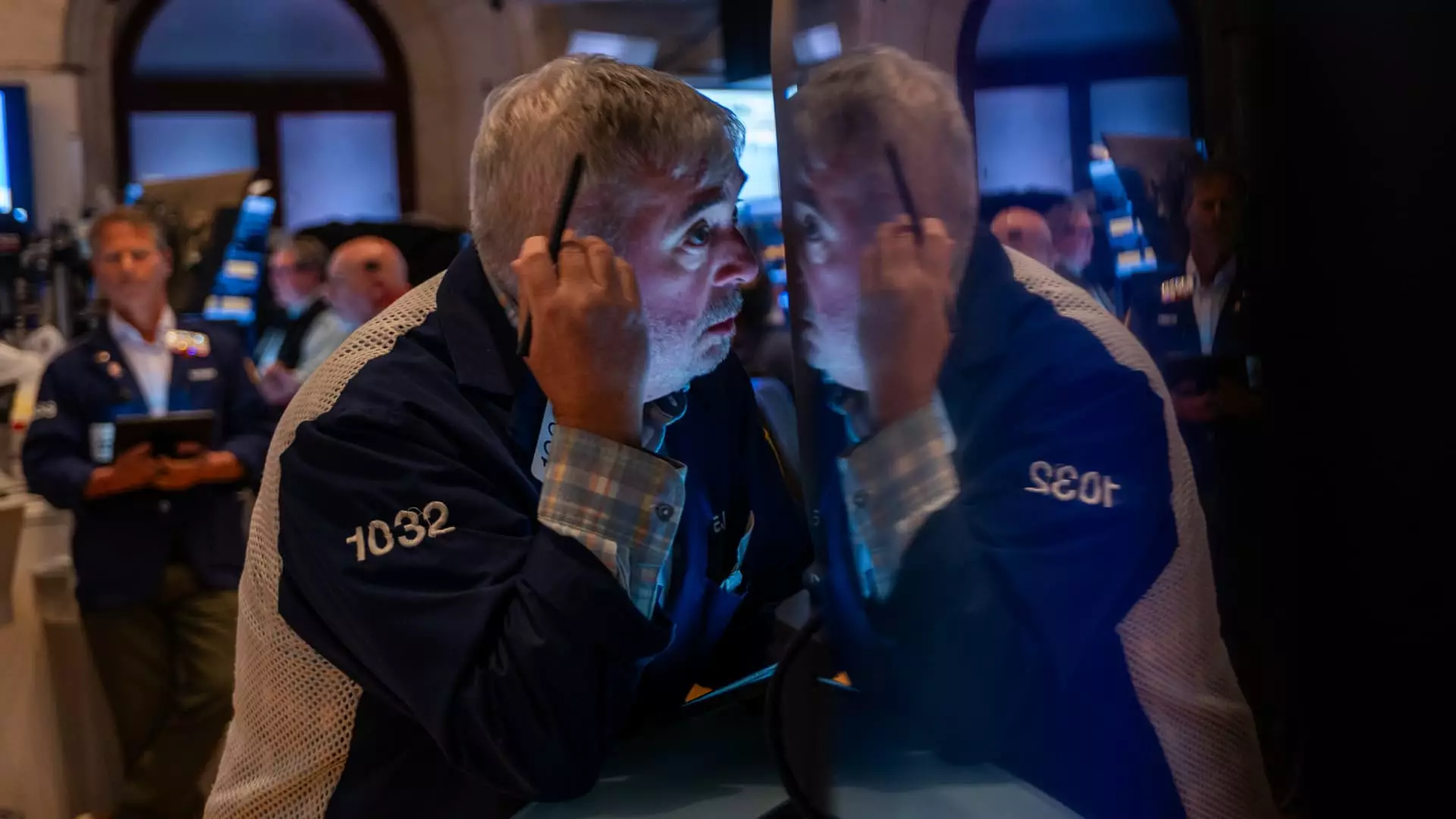The recent announcement of sweeping tariffs by President Donald Trump has not only shocked financial markets but has also cast a dark shadow over the already fragile health of the U.S. economy. With tariffs set at a baseline of 10%—and even soaring higher for specific countries—the possibility of an escalating trade war looms ominously. The immediate fallout was palpable: Dow Jones futures plummeted by 918 points, while indices like the S&P 500 and Nasdaq-100 saw declines of 3.2% and 4.1%, respectively. This kind of volatility reveals a disturbing truth about the fragility of market confidence, which has been rocked by the unpredictable nature of this administration’s economic policies.
On the surface, tariffs might seem like a defense of American interests. Yet, the reality reveals a far more complex and troubling narrative. Multinational companies—like Nike and Apple—experienced declines of approximately 7% each. Other retailers heavily dependent on imports, such as Five Below and Dollar Tree, exacerbated their losses in a swift and dramatic fashion. The economic ramifications of such policies are not just numbers on a trading screen; they translate into actual job losses, increased costs for consumers, and an overall slower economic growth trajectory. It’s a classic case of economic nationalism where short-term gains are prioritized over long-term stability and prosperity.
Complications Amid Chaos
The language surrounding these tariffs has been intentionally convoluted. President Trump, speaking from the Rose Garden, described tariffs as a means of leveling the playing field. He insisted that the U.S. would “charge them approximately half of what they are and have been charging us,” a statement that raises numerous questions about fairness and economic equilibrium. The reality, however, is that effective tariff rates could reach as high as 54% for China, which is not the “cap” that traders had reasonably anticipated.
This profound complexity is reminiscent of a poorly executed play, one where the script was hastily rewritten without consideration for its impact. Art Hogan, chief market strategist at B. Riley Wealth Management, articulated it perfectly: this new tariff regime is “as haphazard as anything this administration has done to date.” The sheer unpredictability surrounding these decisions is alarming and serves only to heighten already pervasive recession fears. When traders cannot ascertain the long-term implications of policy changes, they resort to panic, exacerbating market downturns.
Rising Tides of Economic Anxiety
As the tariffs commence, one cannot help but ponder their broader consequences. Beyond merely creating ripples in the stock market, these tariffs may instigate a wave of economic anxiety that penetrates even further into the American psyche. The market has already been feeling the weight of increasing inflation and stagnant economic growth, and the new tariffs merely serve as a catalyst to exacerbate these prevailing issues. Historical data suggests that protectionist measures, rather than protecting jobs, often lead to their diminishment.
For many individuals and families, the implications of rising prices on imported goods could hit hard. As companies struggle to absorb increased costs, they could pass these expenses onto consumers, leading to higher prices for day-to-day essentials. The beauty of a dynamic American economy is intricately tied to its openness and adaptability; introducing such aggressive tariffs is akin to constructing barriers at a time when bridges ought to be built.
The ongoing uncertainty in economic data further contributes to the idea that a recession is looming. With markets oscillating unpredictably, the S&P 500 has already slipped into correction territory over the past few months. The danger of a trade war is not simply in elevated prices but also in the potential for broader economic malaise, where uncertainty breeds a lack of investment and sluggish growth—a very real threat to the livelihoods of ordinary Americans.
A Nation At the Crossroads
The interplay of market reactions and economic policy under the current administration reflects a critical juncture in American economics. As tariffs become a tool of choice, the fragile balance between protecting national interests and fostering global collaboration grows more precarious. The trade-offs of creating an economically insular America could well outweigh any transient benefits so boldly proclaimed by its proponents.
Ultimately, these events reflect a rapidly shifting landscape in U.S. economic policy rooted in fear rather than foresight. The immediate fallout of Trump’s tariffs signals not just a potential for economic downturn, but a harrowing reminder that a nation cannot thrive in isolation.


Leave a Reply